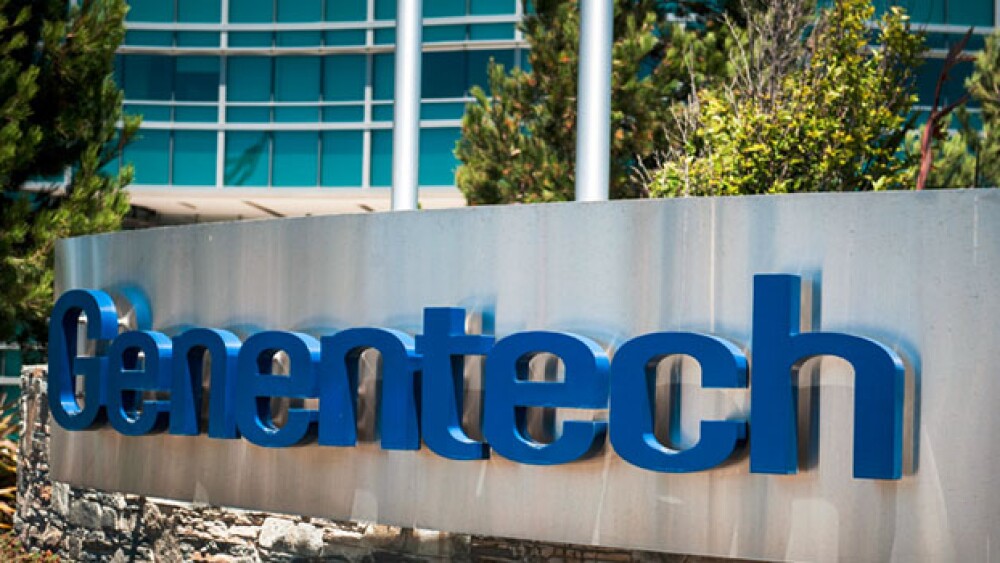A study evaluated fixed-duration the two companies’ Venclexta/Venclyxto (venetoclax) in combination with Genentech’s Gazyva/Gazyvaro (obinutuzumab) in patients with previously untreated chronic lymphocytic leukemia (CLL) and co-existing medical conditions.
Roche’s Genentech and AbbVie announced positive results from their Phase III CLL14 clinical trial.
The study evaluated fixed-duration the two companies’ Venclexta/Venclyxto (venetoclax) in combination with Genentech’s Gazyva/Gazyvaro (obinutuzumab) in patients with previously untreated chronic lymphocytic leukemia (CLL) and co-existing medical conditions.
The study met its primary endpoint, showing a statistically significant decrease in the risk of the disease getting worse or resulting in death compared to standard-of-care Gazyva/Gazyvaro plus chlorambucil.
“People with chronic lymphocytic leukemia continue to need more treatment options because some patients are unable to tolerate chemotherapy regimens due to their underlying health,” stated Sandra Horning, Roche’s chief medical officer and head of Global Product Development. “CLL14 is the first study to show superior progression-free survival for Venclexta/Venclyxto plus Gazyva/Gazyvaro compared to a standard-of-care regimen. We will work with health authorities to bring this potential chemotherapy-free treatment option to people who need it as quickly as possible.”
Venclexta with Rituxan (rituximab) has already been approved as a second-line therapy by the Food and Drug Administration (FDA) for CLL or small lymphocytic lymphoma, with or without 17p deletion. Venclyxto in combination with MabThera (rituximab) was recently approved as a second-line treatment for CLL in Europe.
Venclexta/Venclyxto is being jointly developed by AbbVie and Roche, and jointly commercialized by AbbVie and Genentech in the U.S., and by AbbVie outside the U.S.
“Patients with chronic lymphocytic leukemia generally face a lifetime of continuous treatment to keep their disease from recurring or relapsing,” stated Michael Severino, AbbVie’s executive vice president, research and development and chief scientific officer. “The positive results from the CLL14 trial further demonstrate the potential of venetoclax as a treatment with a fixed duration for patients with chronic lymphocytic leukemia, and may serve as the basis to expand into first-line treatment.”
The CLL14 clinical trial is being conducted in collaboration with the German CLL Study Group (DCLLSG). It was designed to study the efficacy and safety of the combination therapy of venetoclax and obinutuzumab compared to obinutuzumab and chlorambucil in previously-untreated patients with CLL and other medical conditions. Patients received the combination therapies for a fixed duration of one year for venetoclax in combination with six cycles of obinutuzumab. There were 455 patients in total, all previously untreated according to the criteria set by the International Workshop on Chronic Lymphocytic Leukemia (iwCLL).
The DCLLSG was founded in 1996 and headed by Michael Hallek. It runs several Phase III, Phase II and Phase I trials in CLL with the goal of identifying optimal treatments for CLL patients. The group also has a focus on improving treatment for elderly and less fit patients, as compared to younger, physically fit patients, based on the observation that the older and less fit are underrepresented in clinical trials, even though they make up the majority of CLL patients.
The DCLLSG is an independent non-profit research organization supported by the German Cancer Aid (Deutsche Krebschilfe).
According to Roche, more than 20,000 patients in the U.S. will be diagnosed with CLL this year.
Pharmaphorum notes,“At the moment, oncologists selecting front-line therapy for CLL patients have to decide whether to treat them with AbbVie/Johnson & Johnson’s BTK inhibitor Imbruvica (ibrutinib), which is given indefinitely, or a fixed-duration regimen of chemotherapy plus Roche’s immunology drug Rituxan (rituximab), depending on factors such as the patient’s age and the severity of the cancer.”





